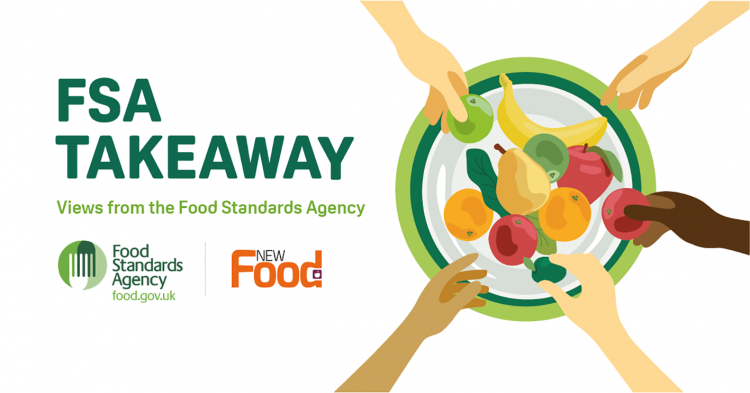New allergen labelling promises safer and more convenient food choices for consumers
- Like
- Digg
- Del
- Tumblr
- VKontakte
- Buffer
- Love This
- Odnoklassniki
- Meneame
- Blogger
- Amazon
- Yahoo Mail
- Gmail
- AOL
- Newsvine
- HackerNews
- Evernote
- MySpace
- Mail.ru
- Viadeo
- Line
- Comments
- Yummly
- SMS
- Viber
- Telegram
- Subscribe
- Skype
- Facebook Messenger
- Kakao
- LiveJournal
- Yammer
- Edgar
- Fintel
- Mix
- Instapaper
- Copy Link
Posted: 6 October 2020 | Rebecca Sudworth | No comments yet
With a year to go until the introduction of a new allergen labelling law, the FSA’s Director of Policy Rebecca Sudworth explains its importance for consumers and how businesses can prepare.


One important area we have had to re-examine is our relationship with food: how we buy it, its availability, our reliance on the people who produce it, and the role it plays in our social lives and the economy.
These are fresh concerns for the majority of us, but they help to offer a glimpse into the lives of a growing population who already have a radically different relationship with food due to an allergy or intolerance.
Questions such as ‘where and how food is produced’, and the trust you have in those producing it must be weighed up not just every day but at every meal. This can place a huge burden on consumers, but a new law that will come into force next year promises to make a difference in their lives.
A different relationship to food
From 1 October 2021 most food which is prepared and packaged in advance for customers to take away, will be required to have the ingredients and allergens listed on the label. This food, which is packaged at the same premises it is sold at, is known as ‘prepacked for direct sale’ (PPDS). This new legislation will mean that, in the future, it will have to be properly labelled.
Understandably, a lot of attention has been focused on the impacts on businesses, but the importance of the change to consumers is equally important. The consequences of food hypersensitivity are clear – the cost of hospitalisations in the UK per year is more than £80 million alone, and the longer-term impact on people’s quality of life is greater than all foodborne diseases combined. However, what we can’t measure as easily are the implications for people who have to make these choices on daily basis.
With around two million people in the UK diagnosed with a food allergy and another 600,000 with coeliac disease, the number of people affected is significant. It is even greater when you consider how many are undiagnosed, have a food intolerance, or are the families, carers or friends of the people living with these conditions.
The new allergen labelling regulations
At the Food Standards Agency (FSA), we know there is no silver bullet to solving these issues. However, progress is being made and next year’s new labelling law will see another step in the right direction.
Food businesses already have a legal responsibility to provide accurate information about allergens present in food, which can be done in a number of ways. In future, foods PPDS foods will have to have the required information on a label. It will no longer be enough to provide information on request, although businesses should continue to ensure that staff are appropriately trained and are able to help allergic customers when needed.
‘On-the-go’ food has seen recent proliferation, but at the same time the accessibility of allergen information for this kind of product has remained available only at the point of purchase. 

What the FSA is doing for businesses
We recognise that the changes to the law will present a challenge for businesses of all sizes, but they are vital changes; and we will do all we can to help and support businesses to adapt to the new requirements.
With that in mind, we have produced useful information on the new labelling at www.food.gov.uk/PPDS and more resources will be developed over the next year.
It explains exactly what PPDS food is, what the new labelling will show, and the steps businesses need to take. We have also produced an online tool to help businesses determine which products will require the new labelling.
In the coming months, further resources for businesses will be provided, including video workshops on how the regulations will apply and case studies to show how different types of businesses are implementing the requirements.
We know that providing high quality information for allergic consumers makes good business sense, and the new PPDS labelling requirements will help create a more inclusive environment where allergic consumers are confident in eating away from home.
The death of Natasha Ednan-Laperouse in 2016 highlighted that labelling really can be a matter of life or death and drew attention to the specific issue of food PPDS. Improving the lives of allergic consumers is a top priority for the FSA, and in 2020 we announced our new Allergy Strategy to ensure that we continue making progress. This new legislation is the next step on the journey, and we will work with business and consumers to make sure everyone understands and benefits from the changes.
About the author
Rebecca Sudworth is the Director of Policy at the FSA and joined in April 2019. She has extensive experience as a Senior Civil Servant in the Treasury and in the Department for Work and Pensions. Her previous roles have focused on social policy, particularly benefits design and reform, labour market policy and programmes to support the most disadvantaged into work. More recently, Rebecca has held Director of Strategy roles at Peabody, one of the UK’s largest housing associations, and at City, University of London.
She has also been a Trustee of Shaw Trust (a national charity helping people gain an education, enter work, develop their career, improve their wellbeing or rebuild their lives) and Chair of Ixion Holdings, a subsidiary of Shaw Trust delivering education and learning nationwide.
Related topics
Allergens, Food Safety, Free From, Ingredients, Outbreaks & product recalls, Packaging & Labelling, recalls, Regulation & Legislation, retail, Supermarket, The consumer









